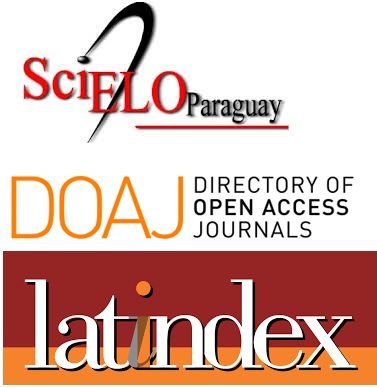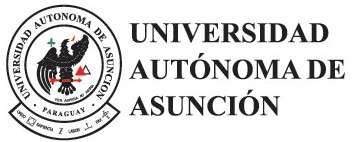Políticas educativas postpandemia
Palabras clave:
Política educativa, métodos educativos, organización educativa.Resumen
Los efectos derivados de la crisis mundial causada por la pandemia, ha afectado de forma contundente a distintos estamentos sociales, de los que no ha podido escapar el ámbito educativo. Concretamente las denominadas políticas educativas se han visto marcadas por los efectos que ha tenido el confinamiento de las poblaciones, que de forma palmaria han tenido su eco en los procesos de aprendizaje del alumando y que ha precisado de desciones políticas para afrontar los retos de mantener la acción educativa sin menoscabo de la calidad de esta. De tal manera que alejados de natural y lógico catastrofismo que se sucede tras esta difícil situación por la que está pasando el mundo, la microsociedad educativa salga reforzada y con argumentos renovados en cuanto a metodologías y recursos para proseguir en la tarea de capacitar a la población antes las necesidades de las sociedaddes de referencia en este contexto global.Citas
Arnett, Thomas, Bob Moesta & Michael B. Horn. (2018). The Teacher’s Quest for Progress: How school leaders can motivate instructional innovation. ChristensenInstitute. Recuperado el 25/08/2021 de: https://www.christenseninstitute.org/publications/teachers-jobs-to-be-done/?_sft_topics=jobs-to-be-done . Baker-Henningham, Helen. (2013) Intervenciones de estimulación infantil temprana en los países en vías de desarrollo: lo que funciona, por qué y para quién / Helen Baker-Henningham, Florencia LopezBoo. p. cm. (IDB Technical Note; 540) Ben-Sahar, Tal & Angus Ridgway. (2017). The Joy of Leadership: How Positive Psychology Can Maximize Your Impact (and Make You Happier) in a Challenging World. Wiley.
Bertoni, Eleonora, Gregory Elacqua, Luana Marotta, Matias Martinez, Sammara Soares, Humberto Santos y Emiliana Vegas. (2018). School finance in Latin America: a conceptual framework — (IDB Technical Note ;1503). DOI: 10.18235/0001306
Bos, María Soledad; A. Viteri, P. Zoido. (2020). América Latina en PISA 2018. BID Publicaciones. DOI: 10.18235/0002439 Disponible en: https://publications.iadb.org/es/america-latina-en-pisa-2018-datos-basicos-sobre-pisa.
Fernald, Lia& Alderman, Harold &Behrman, Jere&O'Gara, Chloe & Yousafzai, Aisha & Cabral de Mello, Meena &Hidrobo, Melissa &Ulkuer, Nurper&Ertem, Ilgi&Iltus, Selim. (2011). Strategies for reducing inequalities and improving developmental outcomes for young children in low-income and middle-income countries. Lancet. 378. 1339-53. Doi: 10.1016/S0140-6736(11)60889-1. Fernández Enguita, M (2018) Más escuela y menos aula. Morata. Madrid
Fritz, M. M., Armenta, C. N., Walsh, L. C., & Lyubomirsky, S. (2019). Gratitude facilitates healthy eating behavior in adolescents and young adults. Journal of Experimental Social Psychology, 81, 4-14. Ganimian, A., y Murnane, R. J. (2016). Improving Education in Developing Countries: Lessons From Rigorous Impact Evaluations. Review of Educational Research, 1-37.
Gertler, Paul, James Heckman, Rodrigo Pinto, Arianna Zanolini, Christel Vermeersch, Susan Walker, Susan M. Chang, y Sally Grantham-McGregor. (2014). Labor market returns to an early childhood stimulation intervention in Jamaica. Science 344(6187): 998-1001. DOI: 10.1126/science.1251178 Gertler, Paul, Sebastian W. Martinez, y Marta Rubio-Codina. (2012). Investing Cash Transfers to Raise Long-Term Living Standards. American Economic Journal: Applied Economics 4(1): 1-32. Glewwe, P. (2013). Education Policy in Developing Countries. Chicago: The University of Chicago Press. Goldhaber, D., Grout, C., & Huntington- Klein, N. (2017). Screen Twice, Cut Once: Assessing the Predictive Validity of Applicant Selection Tools. Education Finance and Policy, 12 (2), 197- 223.
Hanushek, E. A. (2011). Higher Teacher Quality Would Catapult U.S. Toward Economic Growth. Recuperado el 15 de 2 de 2012, de http://educationnext.org/higher-teacher-quality-would-catapult-u-s-toward-economic-growth/ Hanushek, E. A., y Rivkin, S. G. (2012). The distribution of teacher quality and the implications of teacher policy. Annual Review of Economics, 131-157. Hanushek, E., y Rivkin, S. G. (2006). Teacher Quality. Handbook of the Economics of Education, Vol.2, 1051-1078. Hanushek, Eric A., Paul E. Peterson, and LudgarWoessmann. (2012). ―Achievement Growth: International and U.S. State Trends in Student Performance.‖ PEPG Report No. 12 - 03. Cambridge: Harvard Kennedy School. Heckman, J. J. (2006). Skill Formation and the Economics of Investing in Disadvantaged Children. Science(312), pp. 1900-1902. IDIENA, Instituto de Inteligencia Emocional y Neurociencia Aplicada. (2021). I Estudio Nacional sobre la Educación Emocional en los Colegios de España. Disponible en https://www.idiena.com/estudio-2021/ Jaimovich, Analía (2016). Arquitectura institucional para la mejora escolar. Interamerican Development Bank (BID): IDB-BR-148
Layous, K., Nelson, S. K., Oberle, E., Schonert-Reichl, K., & Lyubomirsky, S. (2012). Kindness counts: Prompting prosocial behavior in preadolescents boosts peer acceptance and well-being. PLoS ONE, 7, e51380.
Levacic, R. (2008). Financing schools: Evolving patterns of autonomy and control. Educational Management Administration and Leadership, 36(2), pp. 221–234. DOI 10.1177/1741143207087774
Manekin, Sarah. (2016). City Connects: Redesigning Student Support for Academic Success. The Abell Report. Vol. 29, Nr. 3.Abel Foundation. Disponible en: https://eric.ed.gov/?q=source%3A%22Abell+Foundation%22&id=ED570922
Marina, José A. (2013). La inteligencia fracasada: Teoría y práctica de la estupidez. Ed. Anagrama, colecciónArgumentos. Martínez Rizo, F. (2010). Assessment in the context of educational policy: Latin American Countries. En Paterson, P., Baker, E. & McGaw, B. (Eds.). International Encyclopedia of Education (3rd Ed.). Oxford-New York: Elsevier.
McEwan, Patrick y Martin Carnoy. (2000). The Effectiveness and Efficiency of Private Schools in Chile’s Voucher System. Educational Evaluation and Policy Analysis 22(3). DOI: 10.2307/1164241
Nelson, S. K., Kushlev, K., English, T., Dunn, E. W., & Lyubomirsky, S. (2013). In defense of parenthood: Children are associated with more joy than misery. PsychologicalScience, 24, 3-10. OCDE, Organización para la Cooperación y el Desarrollo Económicos. (2016). OECD Review of Policies to Improve the Effectiveness of Resource Use in Schools: Country Background Report for Chile. Pritchett, Lant. (2013). The Rebirth of Education: Why Schooling in Developing Countries Is Failing; How the Developed World Is Complicit; and What to Do Next. Center for Global Development. Reville, Paul & Lynne Sacks (2021). Collaborative Action for Equity and Opportunity: A Practical Guide for School and Community Leaders. Harvard Education Publishing Group.
Rieble-Aubourg, Sabine; Bos, María Soledad; Thompson, Jennelle; Viteri, Adriana. (2020). Convivir con el coronavirus: ¿Cómo dar continuidad a la educación? BID Publicaciones. Disponible en: https://interactive-publications.iadb.org/es/convivir-con-el-coronavirus/como-dar-continuidad-la-educacion Rivas Flores, I. (2004) Política educativa y prácticas pedagógicas. Barbecho, Revista de Reflexión Socioeducativa. Nº 4, Junio 2004 Rivkin, S. G., Hanushek, E. A., &Kain, J. F. (2005). Teachers, Schools, and Academic Achievement. Journal of theEconometricSociety, 417-458, 417-458. Rodríguez Martínez, C. (2019) Políticas educativas para un mundo global. Octaedro. Barcelona Rodríguez, Antonio. (2018). La escuela del corazón. Santillana Educación SL. Serie EduacaEMOción.
Santos Guerra, Miguel A. (2020). Educar para la felicidad. El Adarve (blog). Consultado el 15/08/2021 en https://mas.laopiniondemalaga.es/blog/eladarve/2020/02/29/educar-para-la-felicidad/ Seligman, Martin E.P. (2020). Niños optimistas. Debolsillo: colección Clave.
Silva, Ivonne. (2020). La felicidad, un área pendiente en las instituciones educativas. Comunicaciones de la Escuela Alta del Colegio Bilingüe Richmond. Consultado el 25/08/2021 en https://richmondschool.edu.co/2020/07/02/la-felicidad-un-area-pendiente-en-las-instituciones-educativas/
The Children’s Society. (2020). The Good childhood report 2020. Disponible en: https://www.childrenssociety.org.uk/sites/default/files/2020-11/Good-Childhood-Report-2020.pdf Urquiola, Miguel. (2006). ―Identifying class size effects in developing countries: Evidence from rural Bolivia.‖ Review of Economics and Statistics 88 (February): 171 - 7. Vegas, E. (2016). Los estudiantes entran a la escuela listos para aprender. BID Educación. Vegas, E. y Coffin C. (2015). When education expenditure matters: An empirical analysis of recent international data. ComparativeEducationReview (May) 59(2):289-304. Vegas, E. y Ganimian, A. (2013). Teoría y evidencia sobre las políticas docentes en países desarrollados y en desarrollo / Emiliana Vegas, Alejandro Ganimian. p. cm. IDB working paper series, 438. Washington, DC: Inter-American Development Bank. Vegas, E. y Santibáñez, L. (2010). The Promise of Early Childhood Development in Latin America and the Caribbean: Issues and Policy Options to Help Realize It.Latin American Forum Series. Washington, DC: The World Bank.
Walsh, L. C., Boehm, J. K., & Lyubomirsky, S. (2018). Does happiness promote career success? Revisiting the evidence. Journal of Career Assessment, 26, 199-219.
Descargas
Publicado
Cómo citar
Número
Sección
Licencia
La responsabilidad del contenido de los artículos publicados es de competencia exclusiva de los firmantes del artículo y de ninguna manera será atribuible a la Editora o al Comité Editorial de la revista.
Los autores de los artículos son los responsables de la obtención del permiso correspondiente para incluir en su artículo cualquier material publicado en otro lugar. La revista declina cualquier responsabilidad que se derive de la posible falta de permiso en la reproducción de cualquier material.
La Revista se reserva los derechos de autor y la reproducción de los documentos en otros medios impresos y/o electrónicos.
Asimismo en concordancia con la promoción del Acceso Abierto, la revista permite que los lectores lean, descarguen, copien, distribuyan, impriman, busquen o se vinculen a los textos completos de sus artículos y permiten que los lectores los utilicen para cualquier otro propósito legal, sujetos a la licencia CC que defina la Revista



